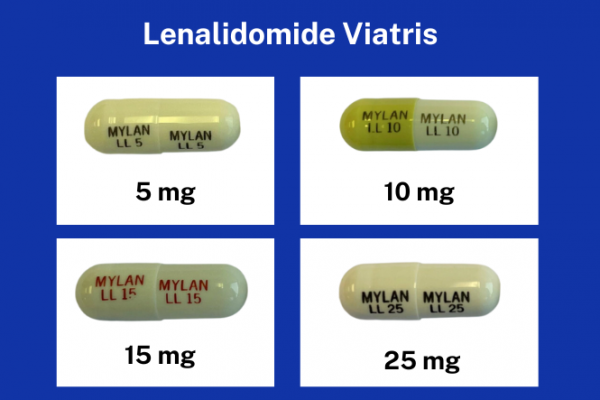- Don't use lenalidomide if you're pregnant or planning a pregnancy.
- If you're sexually active, or if there is any chance that you could become pregnant, ask your doctor about contraceptive options.
- If you or your partner becomes pregnant while taking lenalidomide you must stop the treatment and tell your doctor immediately.
|
Pregnancy Prevention Program
Lenalidomide is only available in Aotearoa New Zealand under a special programme.
- Women and men must be enrolled and agree to the conditions of the program before they can get lenalidomide.
- Only prescribers registered with the pregnancy prevention program can prescribe this medicine.
- Only pharmacies/pharmacists registered with pregnancy prevention program can dispense this medicine.
Females
It's very important to make sure you don't become pregnant.
Note: Even if you're not having regular periods or are near menopause, you may still be able to become pregnant.
- You must use effective contraception at least 1 month before, during, and for at least 1 month after treatment, including during lenalidomide dose interruptions.
- You must have a pregnancy test before starting treatment to check that you're not pregnant and be re-tested every month (before each dispensing) and 1 month after the end of treatment.
- Note: The pregnancy test must be organised by your doctor. You can't use the home pregnancy test kits available from a pharmacy or supermarket. This is to make sure that the test is done accurately and your doctor can give you immediate advice based on the results.
- You should start your lenalidomide treatment as soon as you have had a negative pregnancy test result.
- Make sure you get your lenalidomide within 7 days of it being prescribed, or you will need a new pregnancy test to get a new prescription.
Contraception: Not all types of contraception are suitable during lenalidomide treatment. Only the options with a very low failure rate (less than 1%) are recommended. This means that with perfect use, fewer than 1 out of 100 women using the method will become pregnant in a year.
Recommended contraception:
Contraception that's not recommended:
- Copper IUD (increased risk of infections and bleeding).
- Combined oral contraceptive pill (because of increased risk of blood clots).
- Condoms (unreliable).
- Fertility awareness (unreliable).
You and your partner should talk to your doctor about suitable forms of contraception that you both find acceptable.
Males
Lenalidomide passes into human semen, so there is a risk that the medicine can be passed to partners who could become pregnant during sex. Therefore, it's important for men who are taking lenalidomide to use effective contraception to prevent pregnancy in their partners.
- If your partner is pregnant or able to become pregnant and doesn’t use effective contraception, you must use condoms during your treatment and dose interruptions and 7 days after you stop lenalidomide.
- Note: Even if you've had a vasectomy, you must use a condom throughout your lenalidomide treatment.
- If your partner does become pregnant while you're taking lenalidomide or within the 7 days after you have stopped taking lenalidomide, let your prescriber know immediately and your partner should also contact their doctor immediately.
- Don't donate blood or semen or sperm during treatment or treatment interruption, or for at least 1 week after stopping treatment.
- You must get your lenalidomide within 28 days of it being prescribed, or you will need a new prescription.










